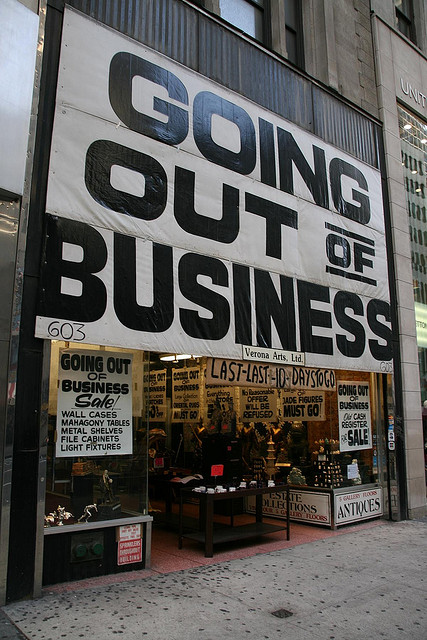In re Saleh (OH) – In re Saleh, 427 B.R. 415 (S.D. Ohio, 2010)

Contents
The Automatic Stay
Bankruptcy brings with it an automatic stay; this prevents creditors from pursuing action against debtors during the bankruptcy process. For Ali, this meant that his home and vehicles were safe from foreclosure.
When Ali and his wife filed for bankruptcy, their bank started to pursue the grocery store for loan collection. Ali sued the bank, claiming that the automatic stay from his bankruptcy extended to his business, not just his home and car. The store was his only source of income and he was the guarantor on all of the business’s loans. He was the sole owner. He believed that the grocery store should be considered a part of his estate in bankruptcy, enjoying all the protections of the automatic stay. The court disagreed.
Corporations are separate legal entities
A corporation is a complicated entity and the law treats it differently than an individual. There are two main types of corporations: S corporations and C corporations. A C corp is what you typically think of as a corporation; it’s an entity unto itself that pays its own taxes at the corporate rate. An S corp differs in one major respect: the owner(s) of the S corp treats the business’s profit as personal income, paying personal taxes on it, and the business itself pays no taxes. In either case, the law treats corporations as entities separate from their owners. Ali’s store was an S corp, meaning that Ali reported the business’s profit on his personal income tax statement and paid taxes at his personal rate on that income.
Ali Observed Necessary Formalities
Creating a corporation requires a lot of paperwork; running it requires even more. All of your t’s must be crossed and your i’s dotted or you might find yourself without the protection that a corporation lends its owners. Ali observed all of the necessary formalities in the creation and operation of his grocery store; it was an official corporate entity. Id. at 423. He followed the rules right down to accounting procedures; he was listed as an owner of equity in the grocery store but the store had its own assets and liabilities. The liquor license and the land were in the store’s name. Ali treated his business as a separate entity, so the court did, too.
Ali argued that his and the business’s affairs were so intertwined that they should be considered one and the same entity. He pointed to his tax returns, where the business’s income was listed on his personal return, but his accountant pointed out that such a listing is standard procedure for an S corp. Id. at 419. He argued that he had guarantied all of the store’s loans. That, according to the court, is also standard procedure. Id. at 424. Business owners commonly corporate loans, especially if the business is new. Ownership of a corporation is not ownership of the corporation’s property, and the automatic stay did not extend to Ali’s business. Under certain very limited circumstances, the automatic stay may apply to another person beside the primary debtor, but never to a corporation. In the words of the court, the law “cannot be read to extend the protections of the co-debtor stay to corporations and other non-individuals or non-consumer debts.” Id. at 420.
The Corporation must file in order to be protected by the stay
The grocery store was Ali’s sole source of income and the bank was pursuing judgment against it for a large loan. If he couldn’t include it in his personal bankruptcy, what were his options?
Filing bankruptcy on behalf of a corporation that has gone out of business is often unnecessary for a few reasons. First, only individuals are eligible for discharge. Next, the cost of filing a bankruptcy for the corporation can be high, it’s often better to wind down operations and file for dissolution.
As long as Ali’s personal liability was extinguished by his discharge, the threat of a judgment against his business entity was illusory.
SEE ALSO: Am I Personally Liable For the Debts of My Business?
About Russ Cope
Russ B. Cope is dedicated to legal standards that go far beyond filing cases — he is interested in your goals. Russ wants to be certain that each client is making an informed decision that will make their life better, and thrives on the interaction between lawyer and client.

Leave a Reply